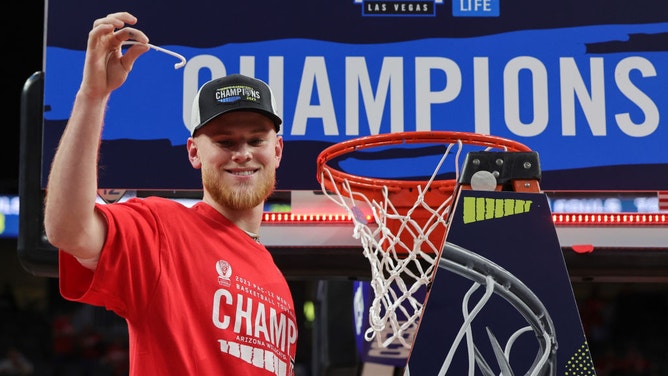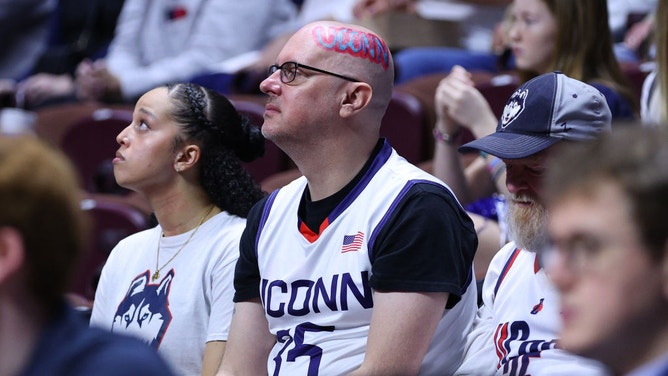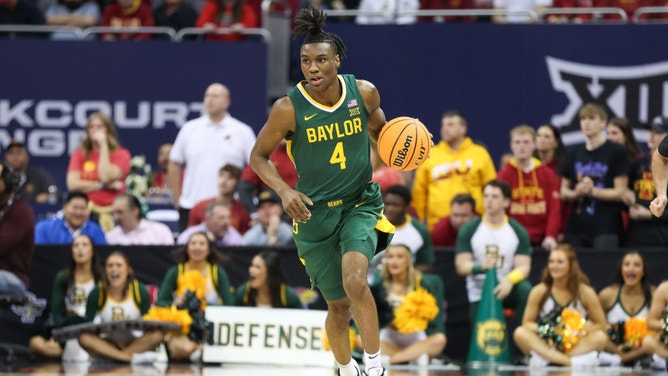Tips For Filling Out Your 2024 NCAA Tournament March Madness Bracket
It's that time of year again! You've watched the games, you know how each team qualified, you complained about the regions and seeding, and you're ready to fill out your bracket. The irony, of course, is that Carol in Accounting – who hasn't watched a single college basketball game all year – is going to win your office's 2024 NCAA Tournament March Madness bracket pool for the fifth-straight year.
Or is she?
See, I find that people make a lot of mistakes when they enter bracket pools. How do I know that? I've run several pools and seen the mistakes. Over years of doing this, certain patterns and trends emerge.
To help you make your 2024 NCAA Tournament March Madness Bracket picks, I'm going to first give some general advice on pools and then delve into some specifics on this year's bracket.
General advice that can give you a better chance to win your NCAA Tournament March Madness Bracket pool every season:
Here's the #1 biggest mistake that almost everyone makes: picking too many upsets. Sure, the upsets are fun to root for, and they make you feel good when you nail that #8 seed beating the #1 seed in the Round of 32. Bragging rights, am I right?
Here's the problem: you probably aren't going to nail those unless you pick a lot of them, and then even if you get one of them right, you've missed all the other ones.
That leads me right into mistake #2: not knowing the rules of your bracket pool. Sounds simple, but many people don't take the time to actually look at the scoring system. Does your pool operate on an even scoring system where all picks are worth the same amount? Or, does your pool reward upset picks by adding or multiplying the seed number to the round value?

Many people don't consider their pool rules and size when making their NCAA Tournament March Madness Bracket picks.
(Getty Images)
If you don't know that answer, find out. Many pools operate on the simple 1-2-4-8-16-32 scoring system. That means that you just have to pick winners and upsets don't reward you beyond just getting that pick correct. If your pool is run this way, you should be very stingy with your upset selections.
Now, if you're in a pool that rewards upsets, you can be a little more liberal with picking them. That's because, since those correct picks are worth more points, getting a few picks wrong in order to get a big one right can be worth it.
But all of this depends on mistake #3: not taking into account the size of the pool. If you're in an office pool with less than 50 people, there's no need to make many risky selections. Does that mean you should pick all chalk? No, it doesn't. But, let other people take those big swings.
READ: The NCAA Tournament Is Full Of Potential Madness With Purdue And North Carolina Getting A Tough Draw
Guaranteed that by the time you get to the Elite Eight, you'll realize that you're still alive while those people who took a shot on Grand Canyon cutting down the nets are already looking ahead to next season.
If you're in a larger pool, say 100 people or more, then you want to take a few more risks. Still, take smart risks that won't crush you if you get them wrong. The size of the pool and the rules are so important to your strategy and many people simply don't take either one of them into account. Don't be one of those people. Just thinking about both the scoring and the number of opponents puts you ahead of most people.
Another thing to consider: who is in the pool? For example, I live in Central Connecticut. If I do a bracket pool with people in my neighborhood, chances are they are all going to pick UConn. If UConn wins the National Championship, I'm probably not going to win the pool. But rather than try to have the best UConn bracket, I'd rather bet against them winning.

It's important to consider who your opponents are likely to pick in your 2024 NCAA Tournament March Madness Bracket pools.
(Getty Images)
You need to consider who is entering your pool – especially when it comes to smaller pools – and if they are going to be biased towards a certain school or schools.
Here's another mistake people make, but this only applies to pools with multiple entries: making, say, five completely different brackets with no rhyme or reason for the picks. If you are in a pool that allows for multiple entries, those brackets should complement one another.
Instead of picking eight different Final Four teams on two entries, maybe swap out two of them for entry #2. Maybe swap out the other two for entry #3. Give yourself a chance, and if the most likely scenario happens – the highest seeds advance – you have your bases covered. If you want to take a big swing with a few entries, go ahead. It's your bracket, after all.
And that's the final mistake people make: understand if you're doing this for fun or to try and win money. Everything I've written here so far is ways to help you finish in the money of a bracket pool. If you just want to fill out a bracket for fun, or are entering a low-stakes pool and the bragging rights are more important than the money, go ahead and take some big swings. You'll get a lot more joy out of picking big upsets this way.
Tips for making your selections for this year's NCAA Tournament March Madness Bracket pools:
Everything above applies every year and will give you a far better chance at winning money in the long run. It doesn't mean you will win money; it's a POOL after all and the odds are always against you. However, the goal is just to give yourself a slight edge over everyone else. In the long-term, that strategy will make you money.
But let's talk about this year's tournament.
No matter where you live, UConn is going to be a very popular championship pick. If you think they are going to win the National Title, that's great. Go ahead and pick them. In this case, though, remember that you're going to be competing against a lot more people if that result comes to fruition.
Because of that, you want to take a few more calculated risks in other parts of the bracket. It doesn't mean picking a #16 seed to reach the Final Four to counteract the UConn pick. It does mean maybe mixing up your Final Four teams a bit.
If there's a champion that you like that you think will be much lower selected … say, a team like Baylor … then you should think about taking a lot less risks in other parts of your bracket. If Baylor cuts down the nets, chances are you're going to be in a great position to win. No need to throw it away by completely whiffing everything else by getting too cute.

Teams like Baylor aren't likely to be overly popular picks, but can provide good pivots if you're looking to go contrarian in your 2024 NCAA Tournament March Madness Bracket pool.
(Getty Images)
The last few years have seen wild NCAA Tournaments with high seeds consistently reaching the Final Four. So, people are going to be tempted to try and guess which teams do that this year.
But the over/under on the total number of seeds in the Final Four is usually around 11.5. That means Vegas expects mostly highly-ranked teams to make it that far and that's usually what happens.
That's all I have for advice this year. I'll send out more detailed picks as we get closer, but I hope this helped you make your picks this year. If it did, let me know: dan.zaksheske@outkick.com.
If it didn't, don't email me because I'll just delete it anyway.
Good luck everyone and enjoy the Madness!